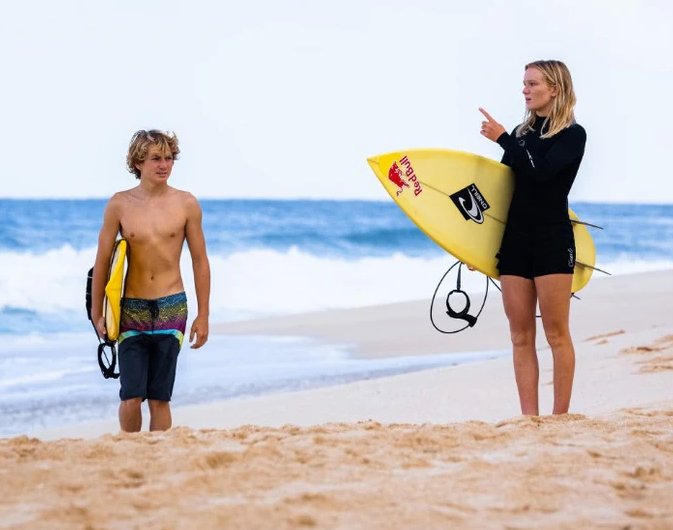The unwritten rules of surfing
Surfing has its own set of unwritten rules, known as surfing etiquette. These rules help ensure the safety of surfers in the water and promote a positive and respectful surfing experience for everyone. Here's a step-by-step plan of the unwritten rules of surfing:
1. Surf spots that suit your ability
Always choose surf spots that suit your skill level. Don't try to surf in conditions that are beyond your ability, as this can be dangerous and lead to accidents.
2. Observe right of way:
When surfing in a crowded area, it's important to learn who has the right of way on the wave. The general rule is to give way to the surfer who is closest to the peak of the breaking wave or the surfer who has been waiting the longest.
3. Don't Drop In:
Dropping in means taking off on a wave that another surfer is already riding. This is considered rude and dangerous, as it can lead to collisions and injuries. Always wait your turn and don't drop in on other surfers.
4. Don't Snake:
Snaking is when a surfer paddles around another surfer to get in a better position for a wave. This is also considered rude and can lead to conflicts in the water.
5. Don't Hog the Waves:
Surfing is about sharing the waves and having fun together. Don't try to catch every wave and leave none for others. Take turns and share the waves with your fellow surfers.
6. Respect other surfers:
When you're in the water, it's essential to respect other surfers. Wait your turn for waves and, as mentioned before, don't drop in on other surfers. If you accidentally do so, always apologize and paddle back out.
7. Respect the Locals:
When surfing in a new area, it's important to respect the local surfers and their customs. Observe the unwritten rules of the spot and be respectful of the locals.
8. Communicate:
communication is key when surfing. Let other surfers know if you're going for a wave or if you're paddling out. Use hand signals or call out to avoid collisions.
9. Don't leave your board unattended:
When you're not in the water, always keep your board close to you. Unattended boards can become hazards for other surfers in the water.
10. Help Other Surfers
Surfing is a community, and it's important to help other surfers when needed. If you see someone in trouble, offer assistance and help them to safety.
11. Respect the Beach
Finally, always respect the beach and the environment. Don't litter, avoid damaging the dunes, and be mindful of the impact of your actions on the environment.
Frequently asked questions
Can Surfing Be Dangerous?Like any sport, there are risks involved with surfing. However, with proper safety precautions and adherence to surfing rules and etiquette, surfing can be a safe and enjoyable activity.
Are Surfing Safety Rules Important?
Yes, surfing safety rules are essential. They help ensure the safety of all surfers in the water and prevent accidents and injuries. By following the basic rules of surfing, you can reduce the risk of injury and have a more enjoyable experience. At O'Neill, we are committed to promoting surfing safety and educating surfers about the importance of following the rules and regulations. Remember, surfing is all about having fun, so stay safe and enjoy the ride!

